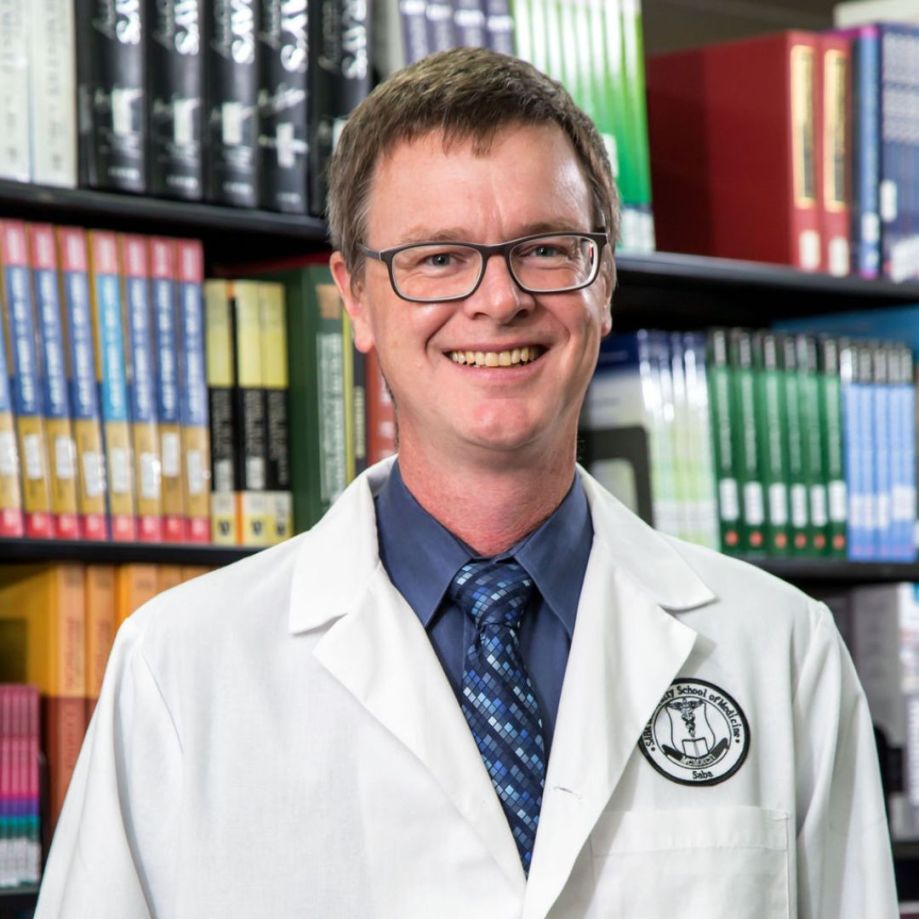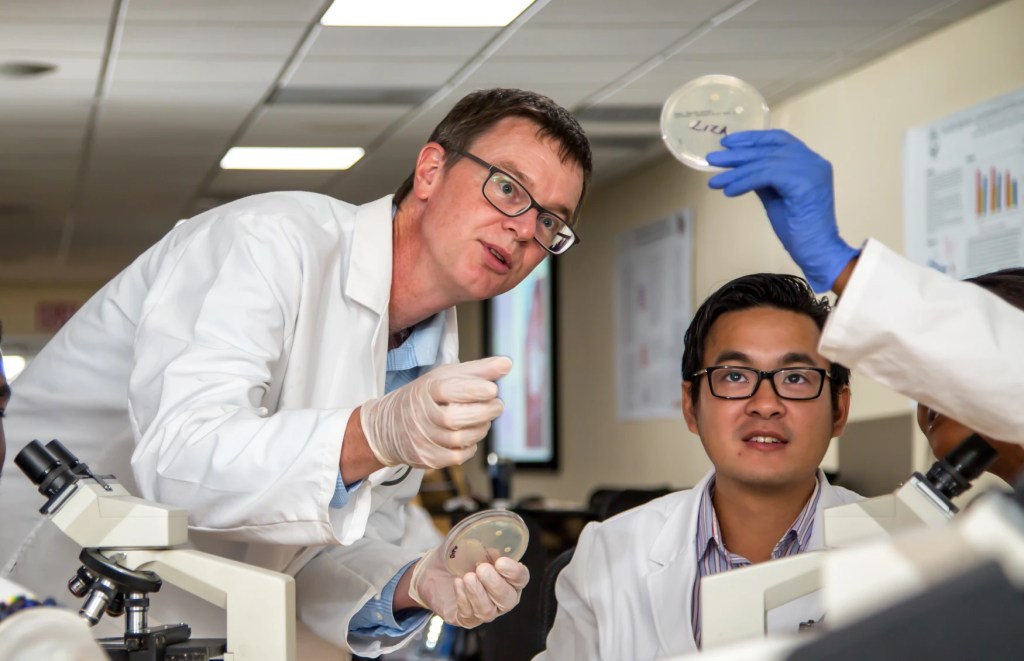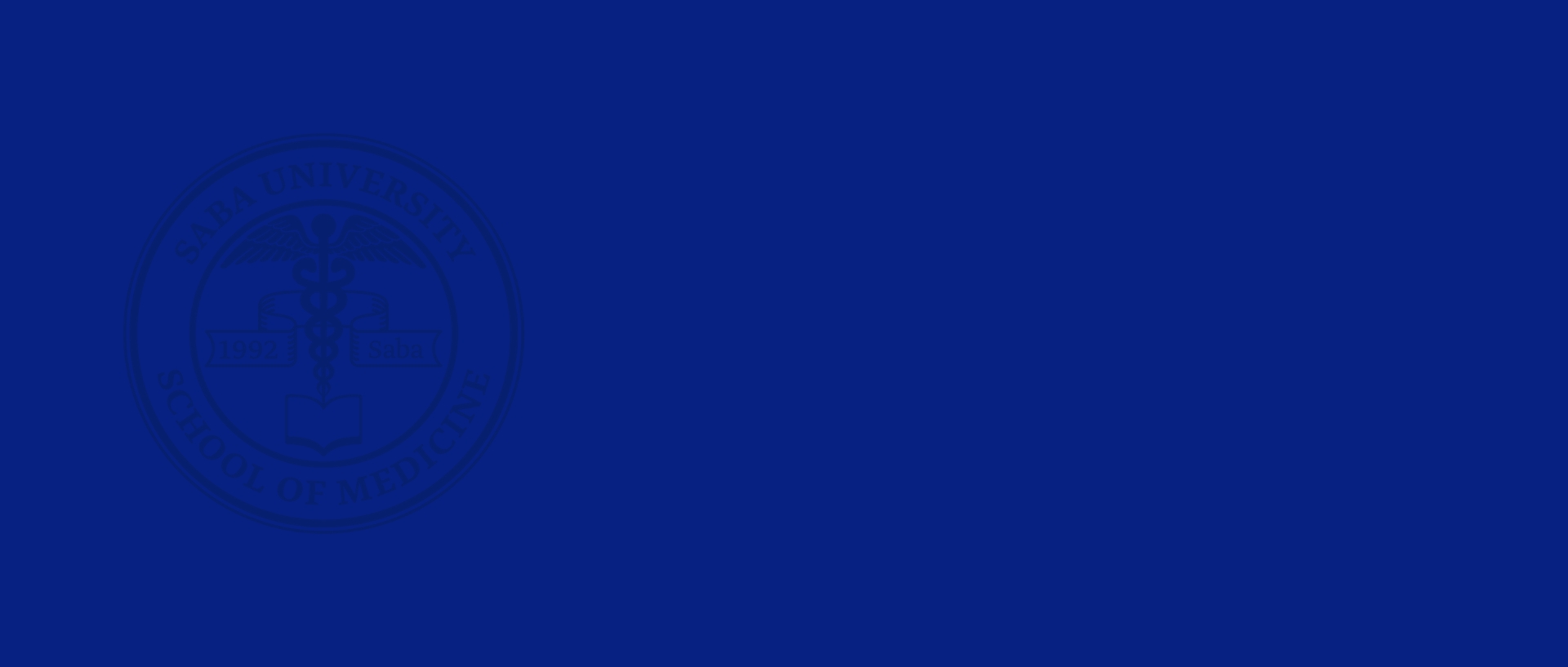MED 611 – Metabolism and Nutrition
The biochemical pathways of living organisms are studied with a focus on metabolic processes. Topics include pathways linking nutritional intake and energy-yielding processes as well as the application of underlying principles discussed in Scientific Foundations (First Semester – First Block).
Broad content includes a study of the chemistry and reactions of constituents of living matter, including carbohydrates, lipids, proteins, nucleic acids, vitamins, coenzymes, and minerals. In addition, the chemistry and regulation of the reactions and processes of whole organisms will be examined including endocrinology, enzymology, nutrition, intermediary metabolism, and biochemical mechanisms involved in select disease states. (9 credits; 133 hrs.)
MED 612 – Genetics and Development
This course provides students with an understanding of the principles and concepts upon which current clinical genetic practice (diagnosis, treatment, and genetic counseling) is based.
It also incorporates human development, allowing students to understand the relationship between embryonic development, in terms of human body structure & function, and the underlying genetic mechanisms of congenital abnormalities.
This course covers the genetics of human populations and introduces recent and ongoing discoveries so that their future applications may be understood. (4 credits; 65 hrs.)
MED 613 – Infection/Defense/Response
This course considers the characteristics and properties of microorganisms, their role in the disease processes, and selected aspects of diagnosis and treatment of infectious disease.
Other topics include the basic principles of bacteriology, mycology, parasitology, virology, immunology, and microbial genetics, including cultural characteristics and pathogenic properties of medically important species of bacteria, fungi, and viruses.
This course covers the basic immunologic concepts of the cells and humoral products of the immune system. Lectures include the molecular biology and genetics of antigen recognition and immunoglobulin production plus the characteristics and detection of antigen-antibody reactions.
The approach is to correlate these basic concepts with clinical manifestations of disease, the immunopathologic mechanisms of hypersensitivity, autoimmunity, transplantation, tumor immunology, hematology, reproduction, infectious diseases, immunodeficiency, and pharmacotherapy. (12 credits; 186 hrs.)
MED 614 – Medical Ethics
This course provides a comprehensive study of the legal and ethical issues involved in the practice of medicine.
Medical ethics will consist of a series of seminars devoted to discussion of various topics such as disclosure, confidentiality, informed consent, and death and dying.
The inclusion of ethics case discussions will allow students to discuss and debate ethical scenarios. Legal cases posing dilemmas that relate to each case will be presented, along with abstract material to facilitate conceptual and ethical analysis. (2 credits; 37 hrs.)
MED 616 – Clinical Skills II
After a review of the skills developed in Clinical Skills I, students will learn additional components of a patient-centered history, including explaining and planning a treatment plan and communication skills in specific situations including delivering bad news, cultural and social diversity, and demonstration of empathy. Instruction on the history continues with the past medical history, family history, social history, and a complete review of systems.
Students will also learn to perform a complete screening physical exam and will continue to develop documentation skills with oral presentations and the patient note. (3 credits; 44 hrs.)
MED 619 – Research Curriculum – Evidence-Based Medicine
Students will have an opportunity to develop research skills related to Evidence-Based Medicine (EBM).
Students will be introduced to concepts of research analysis and critical thinking. At the end of this course, students will be able to identify and frame a clinical question based on therapy, diagnosis, prognosis, or etiology; develop a focused search strategy to identify articles that best answer the clinical question; find the appropriate medical database, and critically appraise articles for validity.
Students will be required to independently utilize various types of EBM resources. Students will use technological resources that are available online and in the Saba University School of Medicine library.
Skills acquired in this course will allow students to complete the research module successfully. Research: Literature Review and Analysis (RLRA). (1 credits; 19 hrs.)




